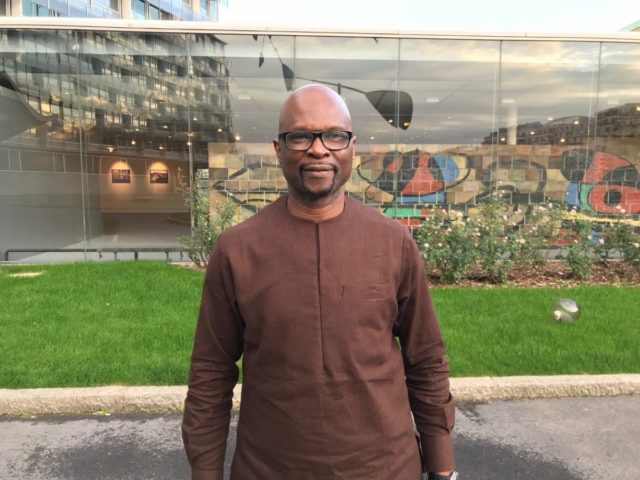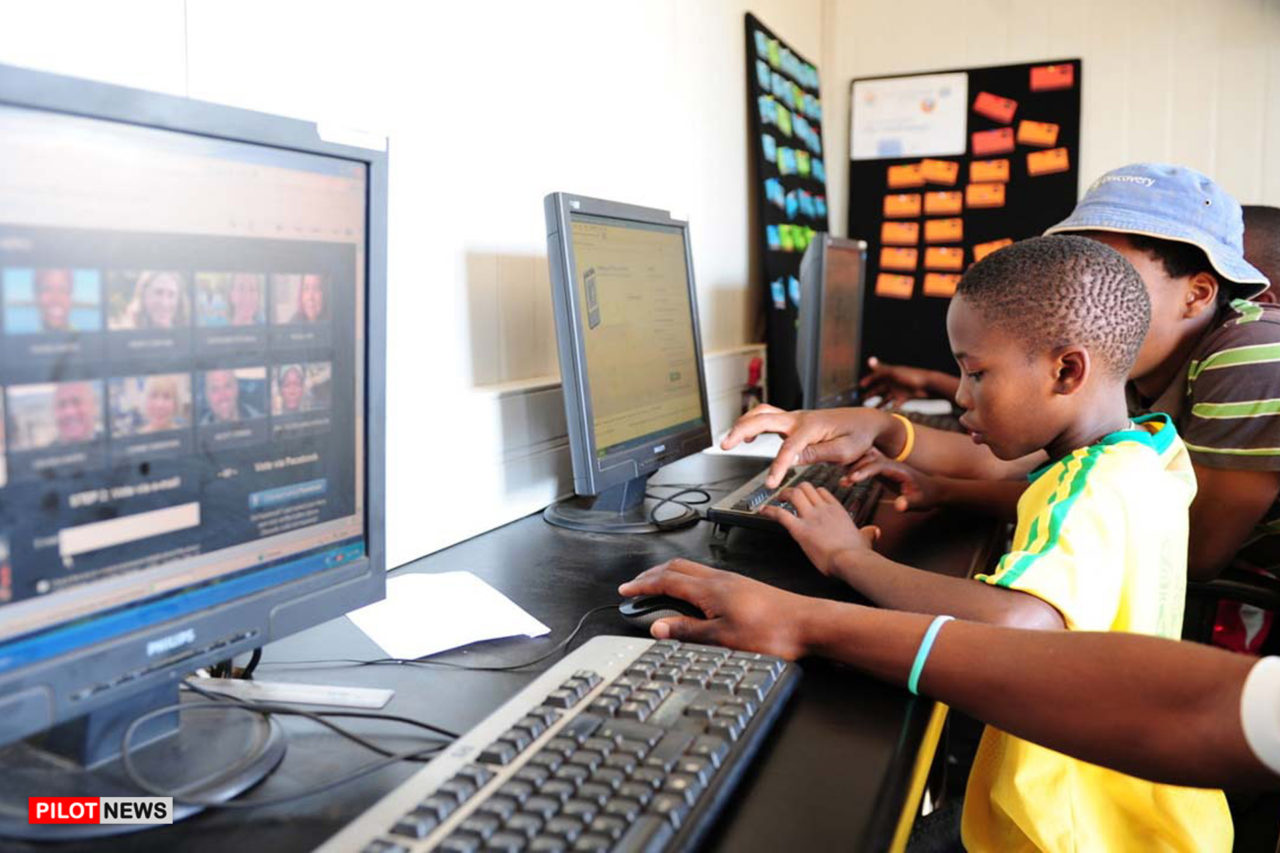LAGOS – With her school shut because of the coronavirus, Tolu Alagba kneels as she copies down class notes from a communal village chalkboard, the closest thing to online lessons on an island with no electricity, a boat ride from Nigeria’s megacity Lagos.
Like much of the world, Nigeria ordered schools shut in late March to curb the spread of the coronavirus. But while children in many countries have shifted to online lessons, that is all but impossible in most of Nigeria, where fewer than 8 percent of households have access to the internet.
In Tolu’s small fishing community, a retired teacher has volunteered to teach around 20 children three times a week in sessions lasting two hours. Children unable to attend in person can copy out the notes by hand, posted on the chalkboard mounted in a communal veranda.
“I’m happy, a teacher brings us together to learn a few things,” said Tolu, 13.

The pandemic, and the global shutdown of schools, is deepening educational disparities between rich and poor, both between countries and within them, said Ydo Yao, regional director in West Africa of UN education agency UNESCO.
The West African Pilot News recently reported that since the outbreak of Covid-19 virus in Nigeria, most students have been sitting at home, alternating between scrolling through Instagram, chatting on WhatsApp and being bored while trying to adapt to what might be their reality for the next few weeks or months.
In a bid to contain the spread of the virus, Nigerian authorities ordered the closure of all social spaces and banned public gatherings including all public and private institutes. With the vast majority of the country’s school buildings closed, the clamour to conduct lessons remotely has risen.
The minister of Education, Mallam Adamu Adamu during a teleconference with Vice Chancellors, rectors, and provost of Nigerian tertiary institution emphasized the need to activate an environment for virtual learning, noting that this would enable students to keep up with their studies using their digital devices. “COVID-19 has changed everybody.
Wealthier Nigerian families have access to the internet, and schools in affluent areas offer some form of distance learning.
Kesiena Onoge, in the Ogudu suburb of Lagos, spends 5,000 naira ($14) each week on internet and electricity – a large sum in a country where most people live on less than $2 a day. It enables her to go online for up to two hours a day with her six-year-old daughter, Naomi.
But even here, and despite the expense, the materials are far from what pupils in rich countries might expect.
“Network generally is bad and slow, and then uploading or attaching the assignment is tough,” said Onoge.
Nigeria has recorded more than 1,700 cases of the new coronavirus, resulting in 51 deaths. Although the president has announced a gradual and phased end to a lockdown in Lagos from Monday, no plans have been announced to reopen schools.
With online learning off limits to most children, authorities are hoping educational programming on older media such as television and radio can help.
Nigeria’s states will provide lessons on radio and TV, on subjects ranging from English and maths to economics and chemistry, according to a tweet from the government on Thursday listing a timetable of programmes.
Nigeria has experience of searching for alternative ways to educate children. In the northeast, an insurgency by Boko Haram Islamist militants has kept some 10 million children aged 6-11 from attending school. Local broadcasters have been showing educational programmes on TV there for years.
“We need to multiply offline solutions,” said Yao.
On her island, surrounded by children playing and laughing, Tolu says she is grateful for the makeshift classes that have replaced her school. “I am happy about the lessons.” ($1 = 360.0000 naira)
(Reuters, with additional reporting by The West African Pilot News)


